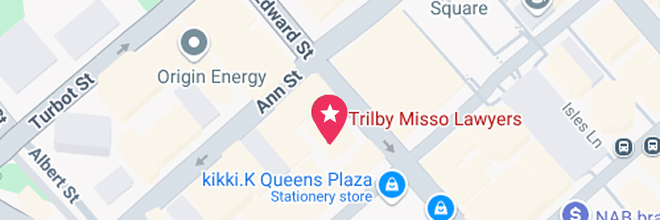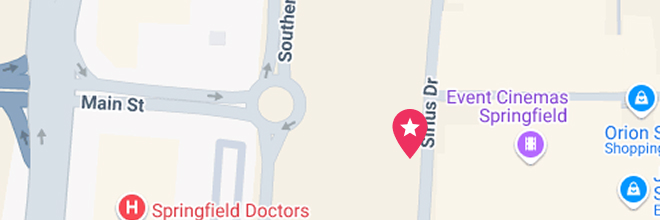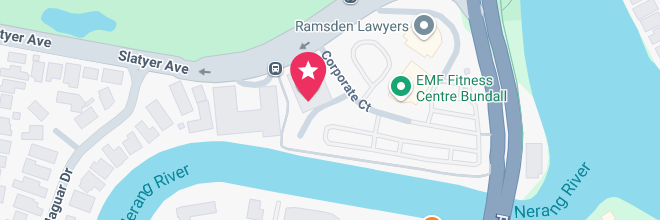Our Brisbane CBD Office
- Suite 400, Level 4/288 Edward St, Brisbane City QLD 4000
- (07) 3910 5470




Almost every personal injury claim in Queensland operates on a ‘no win, no fee’ basis. This arrangement allows individuals who have suffered injuries to seek legal representation without the burden of upfront fees. In simpler terms, it means that if you do not win your case, you won’t have to pay any legal fees. This system plays a crucial role in ensuring that access to justice is available to all Queenslanders, as it enables those who might otherwise be unable to afford legal representation to pursue their claims.
Experiencing an injury is often a distressing and overwhelming event, and navigating the complexities of the legal system to seek compensation can add even more stress. In Queensland, the ‘no win, no fee’ legal model offers a practical solution for individuals looking for legal assistance without facing the financial strain that often accompanies legal proceedings. This article serves as a comprehensive guide to understanding the ‘no win, no fee’ structure in Queensland’s personal injury landscape, ensuring you have the necessary information to seek help when needed.
A ‘no win, no fee’ agreement, also referred to as a conditional fee agreement, is a legally binding arrangement between the client and the lawyer. Under this model, clients are not required to pay any legal fees unless the lawyer successfully obtains compensation on their behalf. This structure is prevalent in personal injury cases across Queensland, making legal representation accessible to individuals who might not have the means to pay upfront costs.
One of the most frequently asked questions regarding the ‘no win, no fee’ arrangement concerns the percentage of a settlement that a lawyer will charge. This fee, known as a contingency fee, is regulated differently across various jurisdictions. In Queensland, law firms are prohibited from charging a percentage of the settlement as a contingency fee. However, law firms can provide clients with a percentage cap on their fees, ensuring that if the costs exceed a predetermined amount, they will reduce their fees accordingly. This practice offers clients reassurance that the legal costs will not exceed the agreed percentage.
At Trilby Misso, we uphold the 50:50 rule, which means that regardless of the amount of work we put into your case, our fees will never exceed the amount you receive after any refunds and disbursements. In situations where our legal work surpasses your final payout, we will adjust our fees to ensure you walk away with a fair compensation amount in your hand.
Understanding whether your lawyer will charge an uplift fee is crucial when considering legal representation. At Trilby Misso, we do not impose uplift fees. Uplift fees can add an extra charge of up to 25% on top of your legal fees, which can significantly reduce the amount you receive from your settlement. By eliminating these fees, we aim to ensure that you receive the maximum compensation possible.
To help you better understand the ‘no win, no fee’ model and how to engage with it effectively, we provide detailed insights into various aspects of seeking legal representation:
In Queensland, personal injury claims can arise from various situations where individuals suffer harm due to another party’s negligence. Below are some common categories of personal injury claims:
Motor vehicle accidents are unfortunately prevalent in Queensland, leading to a wide range of injuries that can vary from minor to severe. Some examples of motor vehicle accidents include:
It’s important to note that accidents can occur outside of traditional roadways, and you may still have grounds for a compensation claim. If you find yourself in such a situation, seeking legal advice tailored to the specific circumstances of your accident is advisable to understand your rights and obligations fully.
Workplace accidents, commonly known as WorkCover claims, can occur for various reasons, including:
If you’ve been involved in a workplace accident, it’s vital to seek legal advice based on the unique circumstances surrounding your incident. Understanding your rights and obligations is essential for pursuing a successful claim.
Public liability claims can stem from a range of circumstances, with the most common being slips, trips, and falls in both public spaces and private residences. Some unique scenarios leading to public liability claims include:
As with other types of claims, it is advisable to seek legal counsel regarding the specifics of your accident to fully comprehend your rights and potential claims.
Individuals may also be eligible to make TPD claims, which can arise if you have suffered a serious injury or illness preventing you from returning to work. TPD insurance policies are often included in superannuation funds, and many individuals may not even realise they have such coverage. Lawyers can assist you in determining whether you possess TPD insurance and whether you have more than one policy.
To make a claim, you typically need to demonstrate that your injury or illness has rendered you unable to work or that you can only work in a limited capacity compared to your pre-incident state. Importantly, negligence does not need to be proven in TPD claims.
It’s also common for people to ask whether they can pursue a negligence claim (such as for a motor vehicle accident or WorkCover claim) while simultaneously making a TPD claim. In most instances, this is permissible, and it may even be possible to claim from multiple TPD policies for the same injury or illness.
Seeking legal advice tailored to your specific circumstances is essential for fully understanding your rights and obligations concerning TPD claims.
Professional negligence claims arise when a professional, such as a doctor or lawyer, fails to meet the standard of care expected in their field, resulting in harm to a client. An example would be a doctor providing negligent treatment, leading to further injury or illness, which would fall under medical negligence.
In terms of personal injury claims, a professional negligence case might involve your lawyer providing substandard advice, missing crucial deadlines, or advising you to settle for less than your case is worth (known as undersettling). As always, it is recommended that you seek legal advice based on your specific situation to fully understand your rights and obligations.
Understanding whether you have a valid personal injury claim in Queensland hinges on the specifics of where and how your injury occurred. Various laws, both statutory and based on court decisions, outline who is eligible to claim compensation, the process for making a claim, and how claims will be evaluated financially.
If you’ve sustained an injury in Queensland and are within the legal timeframes to make a claim, you may be entitled to pursue compensation. Claims can fall under fault and no-fault schemes.
The legal concept of fault often relates to negligence. For example, in a motor vehicle accident where a driver fails to stop at a crossing and collides with a pedestrian, that pedestrian would have the right to pursue a claim for their injuries against the driver and their insurer. Legal professionals assess whether there was a “duty of care” owed by the driver and whether that duty was breached to determine the viability of a claim.
Similarly, workplace accidents may also fall under this category, particularly if the employer or a co-worker acted negligently. Given the complexities of negligence law, consulting with a lawyer regarding the specific circumstances surrounding your accident is advisable.
It’s also possible to have a valid claim even when no one is at fault. For instance, if you suffer an injury or illness with no identifiable party responsible, but you have Income Protection or Total and Permanent Disability insurance, you may still have grounds for a claim. In such cases, eligibility to make a claim depends on the terms outlined in the relevant insurance policy.
Given the significance of timing when it comes to making a claim, it is essential to seek legal advice promptly to ensure you meet all necessary deadlines.
When navigating the aftermath of an injury, uncertainty can permeate every aspect of life. Questions about recovery, treatment, potential return to work, and financial stability often arise, making it natural to want clarity on how much compensation you may receive. The compensation amount is typically determined by several factors, including:
While it’s possible to navigate a personal injury claim independently, having experienced legal support can significantly enhance your chances of success. Engaging a lawyer who specialises in personal injury claims ensures you have someone knowledgeable to guide you through the process.
When selecting a personal injury lawyer, consider the following factors:
Acting promptly is crucial when making a personal injury claim. Each type of claim has specific time limits known as “limitation periods.” Generally, you have three years from the date of the incident to lodge your claim. However, there may be exceptions depending on the circumstances, so seeking legal advice as soon as possible is vital.
‘No win, no fee’ means you don’t have to pay your lawyer’s fees unless they successfully obtain compensation for you. If your claim is unsuccessful, you won’t incur any legal fees.
Generally, there should be no upfront costs associated with ‘no win, no fee’ arrangements. However, it is crucial to clarify this with your lawyer before entering into an agreement.
The timeline for resolving a personal injury claim can vary widely depending on the complexity of the case, the willingness of the parties to negotiate, and court schedules. Some claims may be settled within months, while others could take years.
The ‘no win, no fee’ model in Queensland is a vital component of personal injury law, ensuring that individuals who have suffered injuries can access legal representation without the burden of upfront fees. By understanding how this system works and the types of claims available, you can make informed decisions about pursuing your compensation.
If you’ve experienced a personal injury and are unsure about your rights, it’s essential to seek legal advice tailored to your situation. At Trilby Misso, we are committed to helping you navigate the complexities of your claim, ensuring you receive the compensation you deserve.
Find Trilby Misso Lawyers on Facebook, Instagram and YouTube.


Kathryn is Trilby Misso’s Chief Executive Officer.
Meet KathrynUse this simple online tool and find out if you have a claim in less than thirty seconds. You can choose to remain anonymous.
Your next step is a small one. All you need to do is give us a call on 07 3910 5470 or complete this form here to arrange a quick chat.
During this initial conversation, we will:

We understand that taking legal action can be stressful, and we’ll do all we can to ease your concerns.
The chat can take place at our place, your place, or by phone. There is no cost, no pressure, and no obligation.
Call 07 3910 5470 or fill out this form, and we’ll get back to you within 2 hours (during business hours). We look forward to meeting you.
enquire now